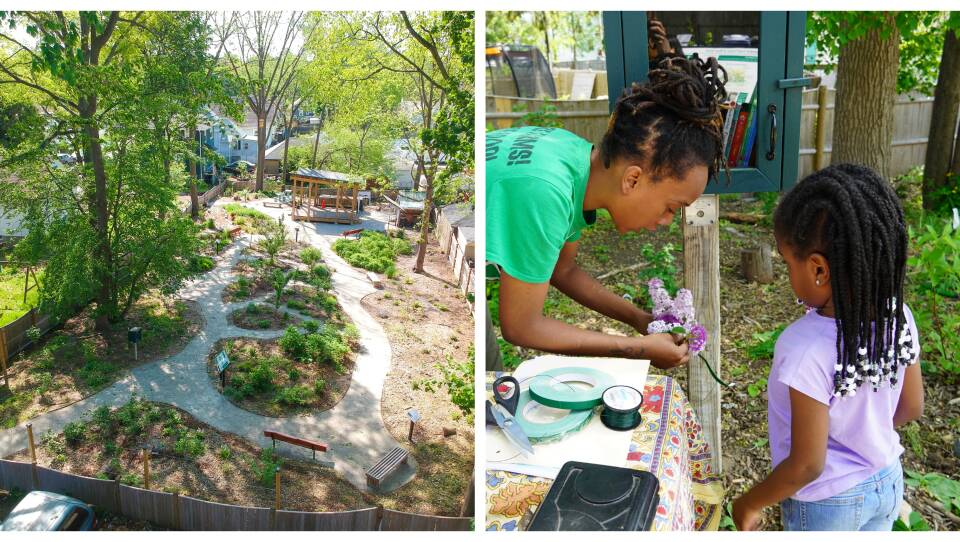Cities across the country are dotted with vacant lots — often overgrown with weeds, full of trash or surrounded by dilapidated buildings. The unused spaces are at best an eyesore.
But some community groups see those empty spaces as an opportunity for food forests: vibrant, public spaces that can also feed their community.
"They're open to all visitors. Humans and non-humans alike are welcome to the produce," Orion Kriegman, founding executive director of the Boston Food Forest Coalition, told Under the Radar. "So, if you see an apple growing in a food forest, you're welcome to pick it and eat it, unlike in a community garden where that might create some tension. And the gardening really happens collectively."
"It's something that happens through community workdays, through volunteer time, and people really have to plan that. And ultimately, it's something that we own together, which is a little bit of a stretch in our culture, to think of ownership as something we can do collectively," said Kriegman.
They kick-started the program in 2013, and now Boston has 10 food forests offering everything from fig trees to mushroom logs to shaded park benches. The Boston Food Forest Coalition is aiming to develop a total of 30 by the end of the decade.
More Local News
The coalition edged closer to its goal when the Edgewater Neighborhood Association officially opened a new food forest in Mattapan this May. Vivien Morris, the association's chair, said there was already a community garden in the area, but all the plots were taken. They wanted a space where everyone could have access to food, while also reflecting the diversity of the community and restrictions of cold weather.
"Our neighborhood is largely Afro-Latino, Black, Afro-Caribbean, people from southern roots. That makes up the large majority of our neighborhood. And yet we are in New England, right? So, we had to select plants that will grow well here, as well as hoping to grow plants that people would want to see."
Morris was pleased to see that there were already several black walnut trees on the plot of land, but it was a learning process to figure out what could grow together.
"And as a person who grew up in the south and grew up eating black walnuts, that was great. On the other hand, what we found is that many of us thought, 'Oh, let's plant some apple trees.' And it turns out that apple trees can't grow near black walnut trees," said Morris. "We did plant cherry trees, pear trees, grapevines, raspberries, other things like that. But we listened to what people wanted to see grown as well as what was possible to be grown."
GUESTS
Orion Kriegman, founding executive director of the Boston Food Forest Coalition
Vivien Morris, chair of the Edgewater Neighborhood Association








